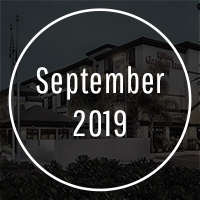Hotel Thought Leaders Tackle Digital Tsunami with Simplicity
“This is no longer the digital age. We’re in the middle of a digital tsunami,” said Bob Rauch, president of R.A. Rauch and Associates and host of last week’s 2nd Annual Digital Marketing Conference.
“There should be no doubt that digital marketing , such as a mobile-optimized site, your vanity site, social media and distribution channel management are paramount to your hotel’s success,” he said.
Held at the Hilton Garden Inn San Diego/Del Mar, the conference drew 50 hoteliers, hospitality management professionals and lenders to hear Rauch’s state of the lodging industry and strategies for success in 2013.
State of the Industry
Rauch opened the conference with a presentation on the rebounding lodging industry.
Calling 2013 a recovery year, Rauch told the audience that by and large, travel demand is up. This past year, the hospitality industry has seen growth in both occupancy and average rate.
For instance, in the highly competitive San Diego region, where Rauch owns two hotel properties and manages four others, occupancy is forecast to hit 71 percent in 2013. According to Rauch, there is likelihood occupancy rates in 2014 will match that of 2007.
Occupancy peaked at 73.2 percent in 2007, plummeted to 63.2 percent by 2009 and has been rising since—to 65.8 percent in 2010, to 68.4 percent in 2011 and 70 percent in 2012, Rauch said.
While average room rates remain below what they’ve been in the past, Rauch is optimistic that in two years rates will reach what they were in 2008 on an inflation adjusted basis.
He warns hoteliers not to continue dropping rates as they have been in the Great Recession.
“Dropping rates will not increase profits,” Rauch said. “Instead focus on building customer equity with WOW service.”
Start With Stellar Service
Travelers can expect to receive four types of service when staying at hotels, Rauch told the audience. This includes, basic, expected, desired and ‘wow’ service.
“Providing ‘wow’ service is the key to building customer equity,” he said. “That’s truly the art of hospitality.”
This starts with really getting to know your hotel guests with data mining. Rauch used an example of a guest who might be allergic to peanuts. First scenario is the guest will have to remind hotel staff of his allergy each time he sits down in the restaurant, or orders from the property’s café. Or, the guest can stay at a hotel where its staff will recognize him and say, “Mr. X, we have a new item on our menu that does not have any nuts in its preparation.”
“Where do you think that customer will want to spend his money?” asked Rauch.
Rauch stressed that hotels should have important notes about each guest, at the minimum their birthday, room preferences, dining preferences/allergies and complete contact information, even Twitter handles.
The difference between a one-time guest and a regular when it comes to overall profit cannot be overstated.
“Bonafide, first-class hospitality can build a customer for life,” Rauch said.
“It’s a simple formula.”
Digital Marketing Efforts Will Define Your Success
Rauch’s guest speaker also stressed the power of simplicity in hotel digital marketing.
Travelers don’t want to be overwhelmed when researching travel options, said Adam Brownstein, founder of Buuteeq, a digital marketing system that enables hotels to create and manage high-performing websites, mobile phone content, a Facebook presence, and direct-to-hotel online reservations.
“Focus, effort, time, and memory. That’s what a guest has to spend to find you,” said Brownstein.
You must present your hotel’s experience for your online customers, he noted. A cluttered Web site won’t do any favors for a hotel, and could easily deter business.
“If it takes too much focus, effort, time or memory to research or reserve a room – they’ll leave you.”
Brownstein told the group to make mobile a priority. According to Brownstein, 30 percent of Web site traffic and 65 percent of same-day hotel reservations come via mobile phones.
He also noted 54 percent of mobile users will not recommend a hotel that doesn’t have a mobile version of its Web site.
Guests want to see the value in your product, so make sure your mobile site is a good one. He also added that hotels must authenticate their product with good copywriting and quality photos.
“Guests will always linger on photos, so invest in good imagery,” Brownstein said.
Quality images are especially important for each of your room types, as that is the second most visited page on a hotel’s Web site, according to Brownstein.
Google is making a foray into the hospitality industry and hotels should “absolutely” be on Google + or have their listing updated on Google Places.
Before ending the conference, Brownstein closed with this guiding principle.
“Whether on a desktop, phone, or tablet, always present your hotel elegantly,” Brownstein said.
“A good user experience – with a simple interface, fast loading times, and elegant look – means a happy guest.”







